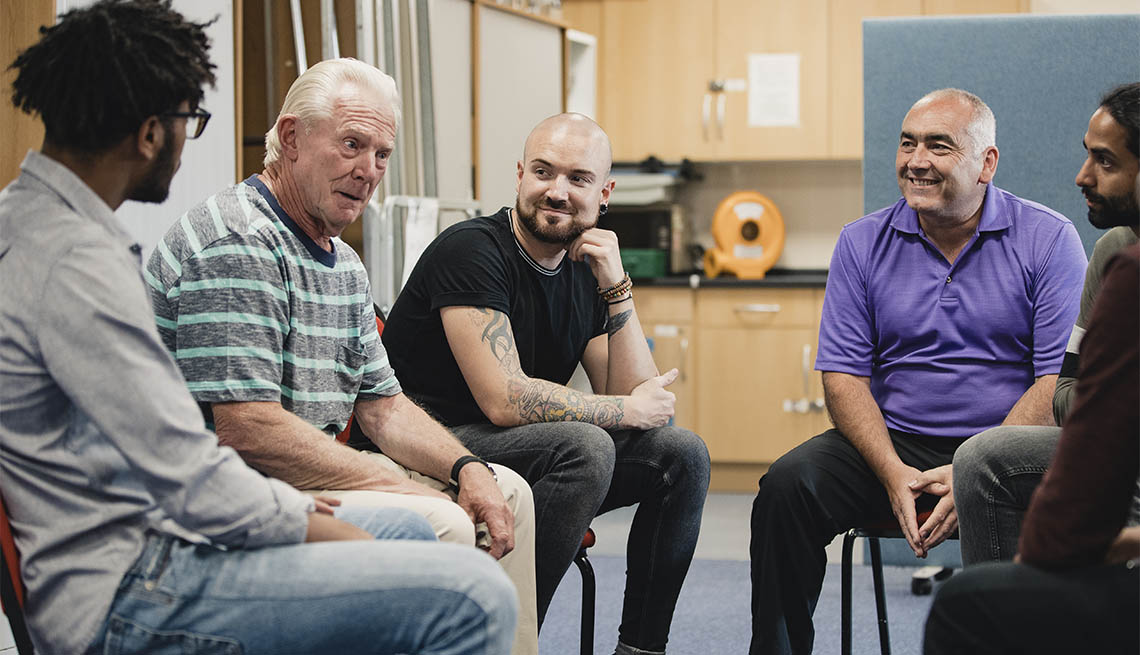Play all audios:
TALK IT OUT Approach the person, alone, in a private place where your loved one feels comfortable. Do this when the person is sober. Stay calm. Don't threaten or shame, and don't
pass judgment. “A person with a drinking problem already feels guilt,” says Robert Meyers, research associate professor emeritus in psychology at the University of New Mexico's Center
on Alcoholism, Substance Abuse and Addiction and coauthor of _Get Your Loved One Sober: Alternatives to Nagging, Pleading, and Threatening_. “If you shame them, it may lead them back to the
bottle, because those feelings are often a hidden motivator for them to drink.” The vibe should be one of concern rather than confrontation and criticism. "Try not to trigger their
defensiveness, because if you do that, the conversation shuts down,” Harrison says. “Craft everything in terms of an ‘I’ statement, rather than an accusatory ‘you’ statement. Instead of,
‘You behaved like a jerk at that party last night,’ say, ‘When you raised your voice and insulted Jim at the party last night, I felt embarrassed.’ You're not talking about what the
person did; you're talking about what you felt. That takes away their ability to challenge what you're saying.” OFFER OPTIONS Brainstorm with them or present them with options —
plural — on how they might want to approach the problem, such as a professional they can talk to for help, an online resource they can check out, or a 12-step treatment program, such as
Alcoholics Anonymous. “Give them a menu of options to choose from, giving one tends to back people into a corner,” says Wilkens. To find treatment options, visit the Substance Abuse and
Mental Health Services Administration site, samhsa.gov, and go to “Find Treatment.” Your family physician can also help. CONSIDER DIFFERENT APPROACHES FOR DIFFERENT PEOPLE If your loved one
is living under your roof, you have leverage, Harrison says. But if the problem drinker is a son or daughter who is living with a spouse or partner, you might broach your concerns with the
other person. “Say, ‘Here's what I'm worried about. What do you think?'” Harrison says. If your adult child's significant other is concerned, the two of you can talk
about the best way to approach the drinking. Sometimes an elderly parent is the one with the problem. “Some seniors are limited in their mobility and stuck at home with very little social
interaction,” says Nowinski. “Loneliness and social isolation — both of which can lead to depression — are triggers for drinking. And, unfortunately, drinking tends to worsen depression over
the long run.” If you live far from them, Nowinski suggests, consider having a caregiver visit a few days a week to provide companionship and let the family know of troubling changes in
behavior. Many religious congregations also have volunteers who are happy to stop by and visit. WATCH THE BIG OCCASIONS If a loved one is in recovery and trying to avoid relapse, then you
definitely don't want alcohol in the house — period. If he or she tends to overindulge at family gatherings, it can't hurt to exclude alcohol so you can avoid embarrassing
episodes. But you may want to collaborate with your loved one. “It might make them feel uncomfortable and feel singled out if you make a choice like that without asking,” Wilkens says.
“Simply say, ‘Hey, would it be helpful if we didn't have alcohol around?'” If alcohol has typically been a part of family gatherings, you could limit how much is available,
Nowinski suggests — perhaps serve a single glass of wine with dinner. “If you're someplace where you can't control the situation, such as a wedding, hang out with the family member
who is trying not to drink and give them a safe word to use if they get shaky,” says Harrison. “Something that means, Hey, I need to get out of here in a little while.” BE GOOD TO YOURSELF

